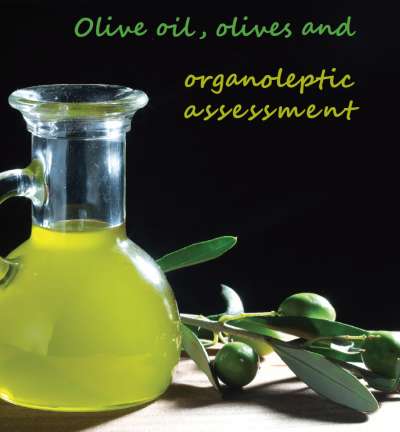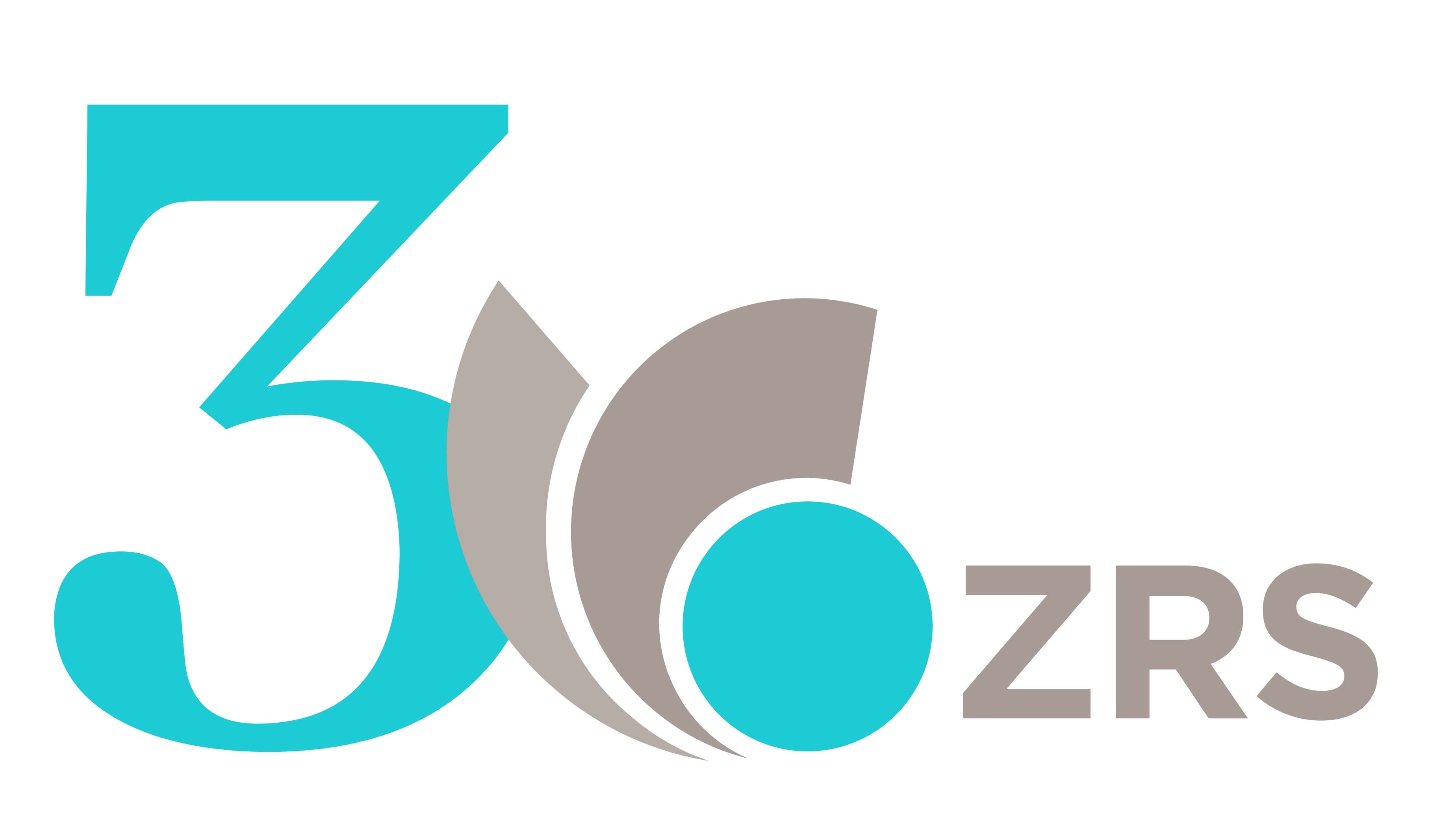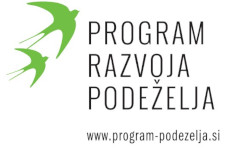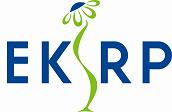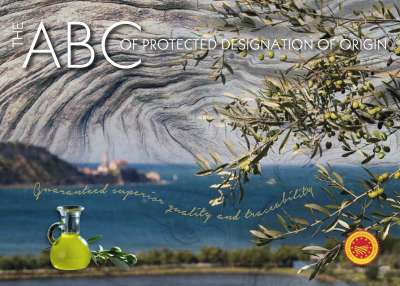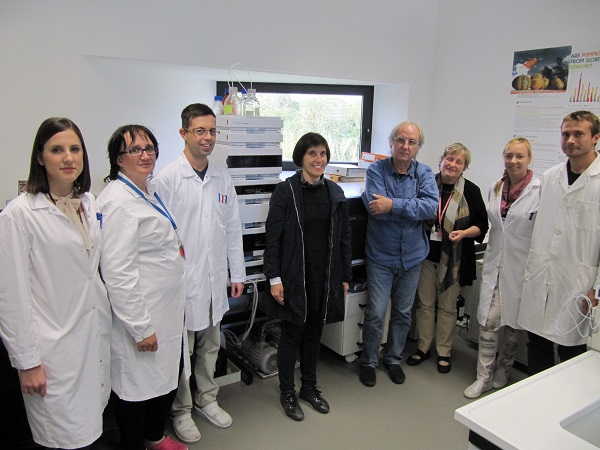
PRESENTATION
Nineteen centuries ago, it was the Greek historian Pausanias who probably mentioned Istrian olive oil for the first time. Later on, olive trees of this area were described by Carlo Hugues in his work Elaiografia Istriana, and olives became the focal point of research for the two beginners of the modern day oliveculture, professor France Adamič, Ph.D., and Stanko Kovačič, Ph.D. The development of an olive oil brand was the first research project of the Scientific and Research Centre. Ever since, this work has continued in the form of research tasks, fundamental, applied and numerous other European projects in the field of morphology, genetics, olive protection and chemical characterization of olive oil. The Institute for Oliveculture will therefore try to preserve the tradition and position of the olive tree in this area and upgrade them with research in the field of agronomy, chemistry and food technology.
Who we are
Institute for Oliveculture at the ZRS Koper was established as a result of numerous aspirations for teamwork and representation of research and professional work in the field of olive-growing with the aim of transferring knowledge from the research sphere to the users. From 1995 to 2016, research and development work of the Institute for Oliveculture was based primarily on project work. The foundations for the sustainable development of olive industry, and thus the establishment of the Institute for Oliveculture, was enabled in 2016 by the Government of the Republic of Slovenia when a decision was adopted to establish a public research institute, the Science and Research Centre Koper, as the newly established institute was entrusted with the tasks of public services in the field of Mediterranean agriculture with an emphasis on olive growing, all within its registered activities.
The Laboratory of the Institute carries out the tasks of national metrology system and is appointed as the holder of the national standard in the scope of the SI unit mol / organic compounds, in particular fatty acids, sterols, biophenols, tocopherols, waxes, triacylglycerols, stigmastadienes in biological materials and in food.
Mission and vision
The Institute connects scientific, higher education, research and professional colleagues in the field of olive-growing and olive culture, as well as olive trees growers, oil producers and table olives producers in their implementation of educational, developmental and research work. The Institute provides support for the operation of the public system for the quality control of production and processing and for the labelling of agricultural products and foodstuffs. It carries out research and development work with the priorities on the needs on the field and it introduces new international trends in the field of agro-technical measures, environmental requirements, technological improvements, ensuring safe food and successful marketing in accordance with the strategies of Slovenian food technology and agriculture. The Institute contributes to the social and economic development of olive culture in Slovenia.
The vision of the Institute is to lay the foundations for the sustainable development of olive culture and to provide transfer of knowledge to growers, food industry, small and medium-sized enterprises, students, local communities and general public while at the same time to strengthen scientific excellence in the field of food quality, food safety and agro technology connected with national and international organizations and public agencies and bodies involved in olive-growing, metrology, health protection, food quality and agriculture. Attention will also be paid to strengthening the Slovenian metrology system by placing the Institute’s Laboratory in European Infrastructure of Metrofood and EURAMET.
The vision is also to promote the participation of the academic sector with international organizations dealing with metrology and reference materials, and with public agencies and bodies concerned with the health and safety of foodstuffs, and to promote an integrated approach in the field of olive growing from the provision of new agronomic technologies to ensuring traceability, finding adulterations and assuring top quality olive oil.
Head: Maja Podgornik, PhD, Research Associate
E-mail: info.izo@zrs-kp.si
Phone: +386 5 663 77 74
Researchers

Maja Podgornik, PhD

Milena Bučar Miklavčič, PhD

Rok Babič

Erika Bešter, PhD

Jakob Fantinič, MSc

Katja Fičur

Gašper Kozlovič

Vasilij Valenčič, PhD

Saša Volk

Michelle Umer
ONGOING RESEARCH PROJECTS
FINISHED RESEARCH PROJECTS
Utilization of olive growing by-products (V4-1621)
In Slovenia, according to the Ministry of Agriculture, Forestry and Food, 2000 hectares are covered with olive groves, in the register of agricultural holdings there are 2000 olive producers and there are 39 registered olive mills. In recent years, a big increase of the area covered by the olive orchards and number of registered olive growers and millers has occurred. The processing technology has changed dramatically as well and all these facts have a strong impact on the quantity and composition of the remains of processing. Therefore – in line with the planned strategy of oliveculture – a very strong need for an integrated approach of solving the issue of remains from the processing of olives in the olive growing, has formed, and it will have to take into account technological and regulatory changes in this area.
Slovenian olive oil producers and millers are faced with huge problems of further use of remains in olive production. Slovenian legislation interprets remains from the processing of olives as waste, because there (still) do not exist prepared expert bases for the strategic arrangement of the field and recommendations, which would be in accordance with the Regulation on waste. In resolving these discrepancies new technologies, the specifics of Slovenian olive growing, and statutory environmental constraints will have to be considered.
Olive and olive oil production generate large amounts of waste biomass (olive leaves, olive pomace), which deferred to the environment represent an environmental problem, but on the other hand it can also be utilized. Known are different deployment strategies of the remains, including the generation of renewable energy by incineration.
New modern technologies are based on reducing the use of additional water with the use of two-phase decanters, yielding the two products from the mills: oil and wet cake.
It is estimated that half of Slovenian olive oil production already utilizes new technology; therefore, it is of utmost importance to explore new opportunities for the utilization of remains from the processing of olive growing.
The project will prepare necessary background and recommendations, which will prescribe the utilization and the sustainable management of remains from processing of olives, taking into account new technologies, increased quantities of remains, environmental requirements and new scientific knowledge in this area.
Available relevant literature and legislation from the field of the remains in olive growing and the present situation in the field will be inventoried and the composition and nutritional value of remains will be determined.
ARRS Code: V4-1621
Period: 1. 10. 2016 – 30. 09. 2019
Head: Bojan Butinar, PhD, Research Fellow
Participating institute ZRS Koper: Institute for Oliveculture
Accuracy of Irrigation Forecast - TriN (V4-1609)
Water is an essential resource for crop production. Climate change is causing changed precipitation patterns and, consequently, cause for reflection about the possibilities of crop production in the changed conditions.
Data show that Slovenia has enough rainfall, but because of their uneven distribution, Slovenian area is increasingly vulnerable to drought. In the last 25 years, on average, every third year, we have faced with drought. Projections of climate change and the potential impacts on evapotranspiration and frequency of agricultural droughts are not promising, neither. The lack of rainfall or their irregular timing, already present problem of risk and great drought threat in Slovenia, where the water resources for irrigation of agricultural land are generally limited.
The basis of rational use of water is the appropriate input data, on the basis of which the current model of irrigation projections is formed. There must be a network of measuring devices for the needs of rational irrigation of each culture. In Slovenia, we have little experience with professional correct implementation of irrigation and with irrigation forecast. Optimal irrigation strategy is irrigation, which saves water and increasing the efficiency of its use, while maintaining the quantity and quality of the crop. Upgrading optimal irrigation must be deficit irrigation. Deficit irrigation strategy is irrigation, which saves water and increasing the efficiency of its use while maintaining the quantity and quality of the crop. In deficit irrigation plants are kept in a slight stress, thereby improving the response of plants to the weather.
The study will determine the most appropriate approach, based on which we will determine the appropriate time of the start of irrigation. As indicated in the survey of Pintar et al., 2013, users and operators wish improved irrigation prognostic services, such as support for irrigation, to be responsible for the proper control of irrigation.
ARRS Code: V4-1609
Period: 1. 10. 2016 – 30. 1. 2019
Head: Marina Pintar, PhD
Lead partner of the project: University of Ljubljana, Biotechnical Faculty
Participating institute ZRS Koper: Institute for Oliveculture
Establishment of technological guidelines for irrigation of olives in Slovenia (V4-1411)
In the last years the Slovenian olive growers and producers have faced problems to achieve constant yields and quality of olive oil due to the extreme weather conditions, especially because of the more frequent occurrence of the drought. In such situations they often irrigate by employing the principle of “crisis irrigation”. Numerous studies performed in the Mediterranean region have shown that for the cultivation of olive trees in areas where the water resources are extremely limited it is appropriate to use the principle of “deficient irrigation”. Despite of the smaller amount of water added compared to the optimal amount it is in this way possible to increase the productivity of the plants and at the same time provide a higher quality of olive oil and a better and sustainable use of water resources. However, the optimal amount of water in the irrigation treatment is very difficult to predict.
The aims of the research project are: 1) to study the impact of water stress on growth and fertility of olive trees and to determine the optimal irrigation treatment in each phenological period based on the results of monitoring of various agronomic characteristics and physiological parameters of olive trees, 2) to assess the impact of irrigation system on the quality and sensorial characteristics of olive oil with determination of primary metabolites of photosynthesis (sugars, sugar alcohols) and secondary metabolites (biophenols), 3) to study the biomarkers in association with the olive trees response to drought stress, 4) to determine the optimal irrigation treatment based on the results obtained in the study. The final aim of the project is to prepare technical guidelines for national strategy for irrigation of olive trees providing a good balance between size and quality of the crop and sustainable use of water resources. In this project we are going to monitor the weather conditions and the phenological development stages of the olive trees depending on the irrigation treatment at the olive grove trial.
ARRS Code: V4-1411
Period: 1. 7. 2014 – 30. 11. 2017
Head: Bojan Butinar, PhD, Research Fellow
Participating institute ZRS Koper: Institute for Oliveculture
ONGOING INTERNATIONAL RESEARCH PROJECTS
EutopiaSIF
EutopiaSIF – Eutopia Science and Innovation Felloship
European Commission: Call: H2020-MSCA-COFUND-2019
Grant Agreement number: /
Partner organisations:
- EUTOPIA university alliance,
- Univerza v Ljubljani,
- Universitet Brussel,
- Univerza v Goteborgu,
- Universite Paris Seinu,
- Univerza Pompeu Fabra,
- Univerza Warwick
Project duration: 1.9.2020 – 31.8.2025
Project holder: EUTOPIA university alliance
METROFOOD-PP
METROFOOD-RI – Preparatory Phase project
H2020 – INFRADEV-2018-2020/H2020-INFRADEV-2019-2
Project start: 1. 1. 2020
Duration of the project: 30 months
Project leader at ZRS Koper: Milena Bučar Miklavčič, PhD
Participating institute ZRS Koper: Institute for Oliveculture
SOLJKE
SOLJKE – Spodbujanje javno-zasebnega partnerstva z razvojem inovativnih proizvodov v oljkarstvu
Project start: 9. 9. 2020
Project duration: 22 mesecev
Project leader: Maja Podgornik, znanstvena sodelavka
Participating institute of the SRC Koper: Inštitut za oljkarstvo
Project results:
- Festival namiznih oljk, Koper, 26. november 2020 (predstavitev in rezultati festivala)
- Strokovno predavanje o zaščiteni označbi porekla namiznih oljk in oljčnega olja, Koper 22. marec 2021
- Priporočila za tolmačenje analize vsebnosti organske snovi in skupnega dušika v tleh
Naložbo sofinancirata Evropska unija iz Evropskega sklada za regionalni razvoj in Republika Slovenija (www.eu-skladi.si)
Automation and economic viability of irrigation in olive growing
Automation and economic viability of irrigation in olive growing
Rural development 2014-2020 for Operational Groups
Within the general phenomenon of changing climatic conditions the olive industry has also had to adjust the technology of cultivation and proceed to the installation of irrigation systems in olive groves. Several studies have shown that olive tree irrigation is an appropriate countermeasure to climate change. Because of the lack of knowledge and fear of economic inviolability, olive growers rarely opt install an irrigation system. By transferring research results into practice while simultaneously evaluating economic viability, a wider range of olive groves will have knowledge and tools to evaluate the justification of irrigation and establish an automated irrigation system in the plantation.
Project start: 15. 11. 2019
Project duration: 36 months
Project leader at ZRS Koper: Maja Podgornik, PhD
Participating institute ZRS Koper: Institute for Oliveculture
Rural Development Programme of the Republic of Slovenia
European agricultural fund for rural development
OLEUM - Novel science based, ready to use, harmonised solutions to enforce Olive oil quality and purity Authentication in the global market
Novel science based, ready to use, harmonised solutions to enforce Olive oil quality and purity Authentication in the global market
H2020 – SFS-14-2014/2015: Authentication of food products A.[2014] Authentication of olive oil
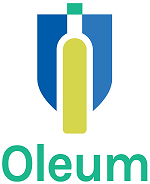
The OLEUM project will generate innovative, more effective and harmonized analytical solutions to detect and fight the most common and emerging frauds and to verify the overall quality of olive oils (OOs). By a core group of 20 partners from 15 countries OLEUM will undertake RESEARCH ACTIVITIES based on the development of IMPROVED and NEW ANALYTICAL METHODS by targeted and omics approaches with the aim: i) to detect new markers of the soft deodorization process; ii) to discover illegal blends between OOs and other vegetable oils; iii) to control OO quality (e.g. freshness); iv) to improve the organoleptic assessment with a Quantitative Panel Test, based on current official methods, and supported by tailored reference materials for better calibration of the sensory panels coupled with rapid screening tools to facilitate the work of the panelists. The most promising OLEUM solutions will be subjected to VALIDATION in conformity with internationally agreed standards by peer laboratories. OLEUM will recreate a realistic “deodorization scenario” by producing tailored, soft deodorized OOs by lab-scale and up-scaled pilot plants to apply analytical solutions to known samples. Substantial KNOWLEDGE and TECHNOLOGY TRANSFER activities will be envisaged to aid in implementation of: a) a web-based easily-accessible, scalable and constantly updated OLEUM DATABANK, containing all the information from OLEUM research and other reliable international sources, will be available for download data and spectra and to help achieve satisfactory harmonization of analytical approaches among control laboratories; b) the OLEUM NETWORK of relevant OOs stakeholders to maximize the impact of proposed analytical solutions. Finally, a robust dissemination strategy by the OLEUM project aimed at effectively sharing results with all stakeholders in the OO supply chain has the potential to improve consumer and market confidence, and preserve the image of OOs on a global scale.
Project start: 1. 10. 2016
Duration of the project: 48 month
Project leader at ZRS Koper: Milena Bučar Miklavčič, PhD
Participating institute ZRS Koper: Institute for Oliveculture
FINISHED INTERNATIONAL RESEARCH PROJECTS
REALMed - Pursuing authenticity and valorization of Mediterranean traditional products
Pursuing authenticity and valorization of Mediterranean traditional products REALMed
ARIMNet2 call 2016
REALMed is a multilateral scientific project, involving North–South Mediterranean countries and aiming at “Pursuing authenticity and valorization of Mediterranean traditional products”. REALMed will value Mediterranean food products by ensuring authenticity and quality, while focusing on traditional practices, national identities and intrinsic environmental quality. Worldwide, consumer concern is growing over issues related to food authenticity, geographic origin, health, nutrition and sustainable production. The use of standards and certifications may imply local environmental conservation issues that will, on a long term perspective, enhance measures to protect the natural areas providing such valuable resources. Indeed, food products have to respond to environmental and socially sustainable claims. This is particularly critical in the Mediterranean region, where several unique and traditional food products of an exceptional quality play a fundamental role in local socio-economic activity and in the conservation of cultural and natural heritages. The latter is, in fact, under threat from the cumulative impacts of land use and climate change affecting the Mediterranean Basin. Since the Mediterranean is a cultural and environmental hotspot, then sensitive and vulnerable, we need to count on a productive, sustainable and resilient agriculture in order to defend it. REALMed will help in that by combining the neglected importance of associating the product to its origin and the practices required to produce it. Main objectives are the creation of a Mediterranean Identity Label, to valorize the products sharing it, and a long-term Cooperation Platform of Experts, to ensure constant monitoring and implementation of techniques.
Project start: 1. 1. 2018
Duration of the project: 24 month
Project leader at ZRS Koper: Maja Podgornik, PhD
Participating institute ZRS Koper: Institute for Oliveculture
The ABC of Sensory Evaluation (PDF)
Authors: Milena Bučar- Miklavčič, Vasilij Valenčič, Teja Hladnik, Erika Bešter, Bojan Butinar, Darinka Čalija , Ana Miklavčič Višnjevec , Saša Volk 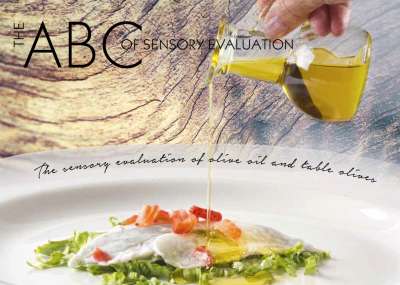
ABC of the variety Istrska belica (PDF)
Authors: Dunja Bandelj, Alenka Baruca Arbeiter, Erika Bešter, Milena Bučar-Miklavčič, Bojan Butinar, Darinka Čalija, Matjaž Hladnik, Teja Hladnik, Željka Kanjir, Tomislav Levanič, Žiga Mazi, Ana Miklavčič Višnjevec, Maja Podgornik, Vasilij Valenčič, Saša Volk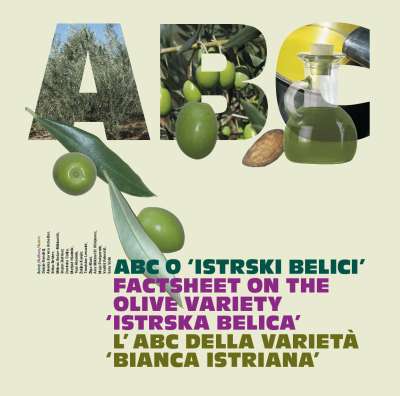
Olive oil, olives and organoleptic assessment (PDF)
Authors: Milena Bučar-Miklavčič, Erika Bešter, Bojan Butinar, Darinka Čalija, Maja Podgornik, Vasilij Valenčič 